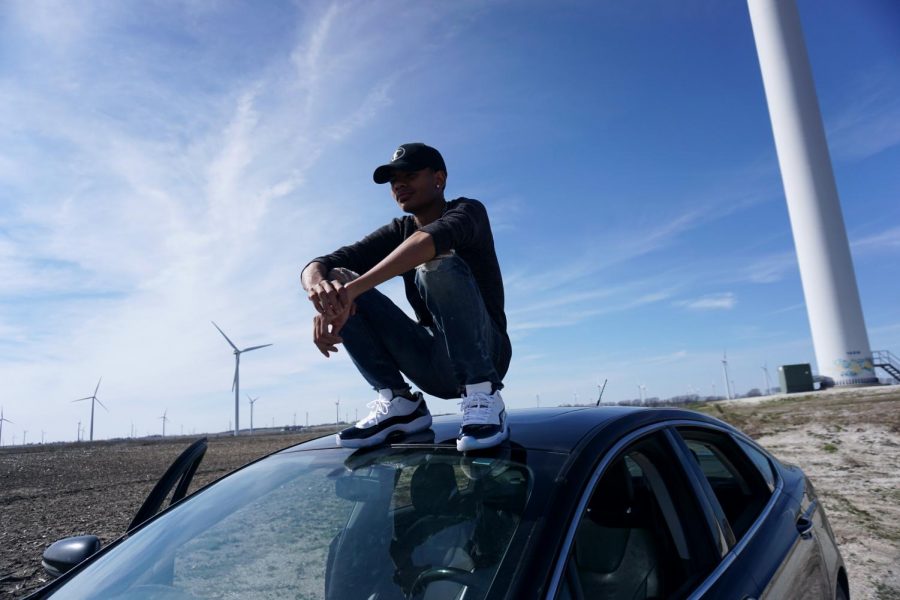Hugh Lee is a ‘Class Act’
Hugh Lee is a Class Act
April 29, 2018
From his life to his laurels, Hugh Lee always keeps it honest. The 22-year-old Chicago rapper keeps it cool, using his witty bars and skilled flow to voice a fresh message. Lee will perform May 2 at Elbo Room in Lakeview and will be dropping his sophomore EP Class Act May 4.
The Chronicle spoke with Hugh Lee about his path as an artist, his latest music and the state of hip-hop in Chicago and around the world.
THE CHRONICLE: You said in an interview, “You start off just making the guns, drugs kinda music but after a while you say ‘What am I gonna be? What type of artist am I gonna be?'” What does that step look like to you?
HUGH LEE: I want to be honest. There are a lot of people who are like me, and I didn’t realize that starting off. I wanted to be like the mainstream because when I started, Chief Keef was the biggest thing, Lil Durk and Lil Herb, G Herbo now, and although that’s the stuff I grew up around, and that’s the kind of stuff I saw day-to-day, it wasn’t necessarily the artist I wanted to be. Especially when you have [rappers like] Chance coming up showing that there was an entirely different lane you could take without the consequences that come with being in the drill scene because with that you had to deal with people shutting down shows, people shooting up shows, things like that.
It was a process of figuring out which lane I wanted to make mine, and now that I’ve found that, I’m somewhere in the middle, like most people are. You don’t want to be in those situations, but especially growing up in the city, a lot of times you find yourself in those situations.
How can hip-hop help the youth?
This is a pivotal time in hip-hop because more so than before, everyone’s eyes are on hip-hop. Even in the ’90s to early 2000s, we had a huge black audience, but now the whole world is looking at hip-hop.
We have the platform and the potential to make a change, and it could be either good or bad; it’s whatever we make it, and I try to keep it positive. With the TV’s foster child thing, I realized that there were a lot of people like me that grew up watching TV. I learned everything from the streets that I needed to survive, but I learned everything about school and the corporate world and things of that nature from the TV. The streets can only teach you so much. There’s no emotional literacy in the streets, and so I learned all that from the TV because I didn’t have any mentors.
I talk about it often, but everybody knows I grew up in Austin and grew up in a drug house. Everyone there did some type of drug, with the exception of my parents, who worked 24/7, so I didn’t really see them. I was around drug addicts, and they’re obviously not going to take care of me. So I sat in front of the TV all day.
How was the writing process for your most recent track, “Graduation”?
I wrote that song when I was looking back at my rap endeavors, and I went back to school. I originally dropped out because when me and Brewski started doing music, we released a song called “MVP,” which got us a record deal.
When I got the record deal, I decided to drop out because I was like, ‘Well, I got a record deal now, I don’t need to be in school because this is what I’m going to do.’ It was a bad deal, and there was so much that came with that that it took me a couple years to pick myself up from that situation, and so I went back.
It’s me finishing school finally, and I felt good about finishing, in the Kanye sense, not the whole “I’m graduating.” It was more so that I decided that I was finished because I have something that’s more lucrative than spending all my money on student loans, like I can actually make money doing something. So graduation is kind of ironic because I’m not really graduating, I’m just deciding I’m finished at this point.
How do you think Chicago stands in the hip-hop scene?
Chicago is like every other city where we have a huge pool of talent. The only difference between us and everywhere else is that it’s so competitive here because there isn’t a lot of opportunity. So when there’s a window of opportunity, everyone’s pushing for it so they can be the one person that’s going through it. Now when that happens, it gives us that crabs in a bucket feel, as opposed to places like New York and LA and Atlanta, where they all stick together and boost up the scene, and it makes everyone somewhat known or noticed.








